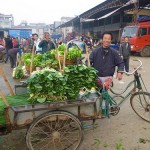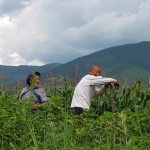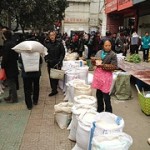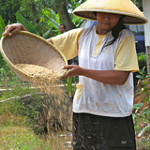Working with leading experts on the reform era who are well informed about the internal processes and logic that drove the reform movement, IFPRI explored China’s economic growth.
Industrialization in China and Africa
The business model called “clustering” involves small businesses that are part of the same industry banding together to specialize in one narrowly defined stage of production. An IFPRI research team completed a study involving four in-depth case studies in China on the subject.
HarvestPlus China
Using innovative ways to fight this “hidden hunger,” HarvestPlus-China contributes to knowledge and technology transfers across research institutions and implementing agencies in both developed and developing countries.
China Strategy Support Program and the International Center for Agricultural and Rural Development
Chinese policymakers are increasingly learning from other international development actors and sharing their own experiences as they design agriculture strategies and poverty-reducing programs. To enhance these collaborations and meet government demand for policy-relevant knowledge, IFPRI launched its China Strategy Support Program in 1996 and subsequently established the International Center for Agricultural and Rural Development (ICARD) in 2003 together with the Chinese Academy of Agricultural Sciences.
Public Investment in Agriculture in China
IFPRI’s Priorities for Pro-Poor Public Investment in Agriculture program, active from 1998 to 2002, provided policymakers with the research-based evidence they needed to determine which investments to make and how to maximize their efficiency in reducing poverty and food insecurity.
Plausible Futures for Economic Development and Structural Adjustment – Impacts and Policy Implications for Indonesia and Australia
IFPRI reviewed the role of agricultural sectors in rural development and the overall economy and identified policies that can impact positively upon incomes, poverty and hunger in the longer-term



